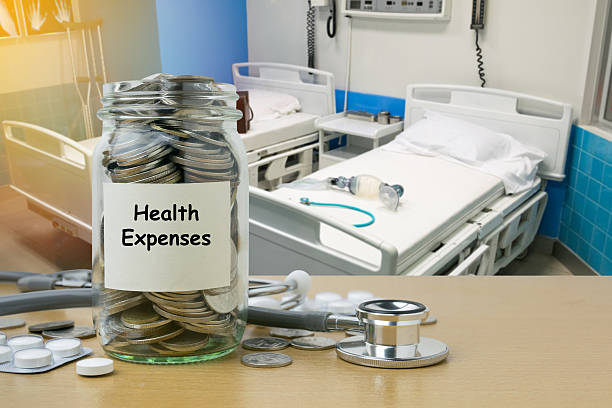%201.svg)
%201.svg)


Today’s healthcare system is complex and that complexity doesn’t stop at medical care. From understanding treatment options to dealing with insurance red tape, patients often feel overwhelmed, unheard, and unsupported.
That’s where patient advocates come in.
Patient advocates are trained professionals who support patients and families throughout their medical journey clarifying language, protecting rights, and ensuring the patient’s voice remains central in every decision.
But a common question arises: Are hospitals legally required to have patient advocates?
Let’s break it down.

A patient advocate is a trained professional—or sometimes a trusted caregiver—who supports individuals in navigating the often overwhelming world of healthcare. Their primary role is to ensure that the patient’s voice, values, and preferences are heard and respected in all care decisions.
At a time when medical systems can feel impersonal and confusing, patient advocates bring clarity, compassion, and confidence to every step of the journey.
Whether working in a hospital or independently, patient advocates provide essential services, including:
Medical terms can be overwhelming, especially when you're already dealing with the stress of a diagnosis. Patient advocates break down complex language into plain, everyday terms so patients can fully understand their options—and make decisions that align with their goals and values.
From referrals and paperwork to discharge instructions, the logistics of care can be exhausting. Advocates help streamline processes by coordinating with departments, scheduling follow-ups, and ensuring that transitions between care providers are smooth and safe.
Patients often struggle to ask the right questions—or may feel intimidated in clinical settings. Advocates help voice concerns, clarify instructions, and ensure everyone on the medical team is aligned around the patient’s needs.
Surprise charges, denied claims, and opaque billing practices are a source of stress for many patients. Advocates assist in reviewing bills for accuracy, filing appeals, and working with insurers to ensure fair coverage—potentially saving patients thousands of dollars.
Advocates ensure that patients receive ethical, respectful care at all times. This includes safeguarding privacy, supporting informed consent, and intervening when care plans feel rushed, biased, or unclear. They empower patients to say "no," ask for second opinions, or challenge decisions when necessary.
💡 At Paraway Health, we believe that patient advocacy isn’t just about fixing problems—it’s about creating peace of mind and equipping patients to take control of their health journey.
Employed by hospitals, these advocates are often part of the Patient Relations, Patient Experience, or Customer Service departments. Their goal is to support patient satisfaction, resolve complaints, and act as a liaison between patients and providers.
Hired directly by patients or families, these professionals work outside the hospital system. They offer unbiased support and can advocate solely in the patient’s best interest especially helpful during complex or high-stakes cases.

At the federal level, no law explicitly mandates hospitals to employ patient advocates. However, there are regulations that emphasize patient rights. For instance:
Some states have taken steps to require or encourage patient advocacy services in hospitals. For example:
The presence and enforcement of advocacy-related laws vary by state, creating disparities in services patients can access depending on their location.
Hospitals seeking accreditation from bodies like The Joint Commission must meet certain patient support standards. While not explicitly requiring a patient advocate, accreditation encourages hospitals to adopt robust systems to protect patients' interests. Advocacy services often fall under these systems.
Despite these points, many hospitals voluntarily employ patient advocacy programs to improve patient satisfaction and remain competitive.

Most hospitals that offer advocacy support embed it within their patient relations or customer service departments. These departments serve as intermediaries, aiming to resolve patients’ concerns and manage grievances.
Some institutions stand out for their emphasis on advocacy:
Even smaller community hospitals often have designated staff members trained to address patient concerns, despite facing resource constraints.
Advocates ensure effective communication between patients and healthcare teams. Patients can clarify doubts about diagnoses, medications, or treatment plans without feeling rushed.
One significant benefit of advocacy is improved patient safety. Advocates can help identify potential risks, such as medication errors or unsafe discharge protocols, before they escalate.
Hospitals can be an intimidating environment. An advocate offers reassurance while also guiding patients through administrative processes like insurance claims or discharge paperwork.
Research shows that advocacy reduces patient anxiety, encourages adherence to treatment plans, and leads to better health outcomes.
Hiring and training patient advocates require funding. Hospitals balancing tight budgets may prioritize other areas, limiting robust advocacy services.
Patients may feel wary about seeking support from hospital-employed advocates, perceiving them as less impartial than independent professionals.
Patients unaware of the availability of advocacy services are unlikely to access or benefit from them. Awareness campaigns are crucial for bridging this gap.

If a hospital doesn’t employ advocates, patients can explore other resources:
Groups like the Patient Advocate Foundation offer free advice, especially for navigating insurance or resolving billing disputes.
Medicaid and Medicare Services often provide patient support helplines.
Websites like PatientsLikeMe allow individuals to connect, share experiences, and advocate for one another.
While hospitals aren’t yet universally required to staff patient advocates, their role in improving patient outcomes and healthcare satisfaction is undeniable. Whether through mandated policies, accreditation encouragement, or internal initiatives, all hospitals should aim to prioritize advocacy.
For patients and families, actively seeking advocacy support can make a substantial difference in navigating the complexities of healthcare. By championing advocacy, we move closer to a truly patient-centered care model.
If you want tailored advice or further guidance navigating healthcare, many advocacy organizations are happy to support. Reach out and take charge of your care today.
A patient advocate supports individuals navigating the healthcare system by helping them understand diagnoses, make informed treatment decisions, communicate with doctors, manage insurance or billing issues, and protect their healthcare rights. Their role is to simplify the process and ensure that the patient’s needs, values, and preferences are respected throughout their care journey.
Hospital-based advocates work within a medical facility and are often part of the patient relations or experience team. They assist with in-hospital concerns, policy clarification, and service feedback. Independent advocates, on the other hand, are hired directly by patients or families. They provide more personalized, unbiased support—especially helpful for complex, long-term, or out-of-network care.
It depends. Hospital-based advocates are typically provided as a free service to patients during their stay. However, independent advocates usually charge for their services, with rates ranging from $75 to $200 per hour depending on their experience and specialization. While this cost is out-of-pocket, it can lead to savings by helping patients avoid billing errors or unnecessary treatments.
You can find a patient advocate through:
Yes. In fact, many advocates are family members or close friends who help their loved ones through complex care situations. While they may not have formal training, family advocates play a crucial role in attending appointments, asking questions, managing paperwork, and ensuring that decisions align with the patient’s wishes. Some even go on to receive certification and become professional advocates.


